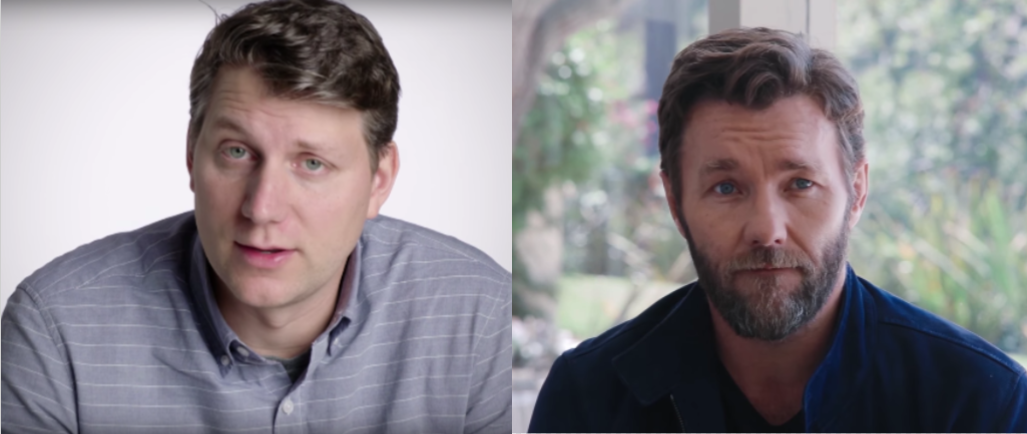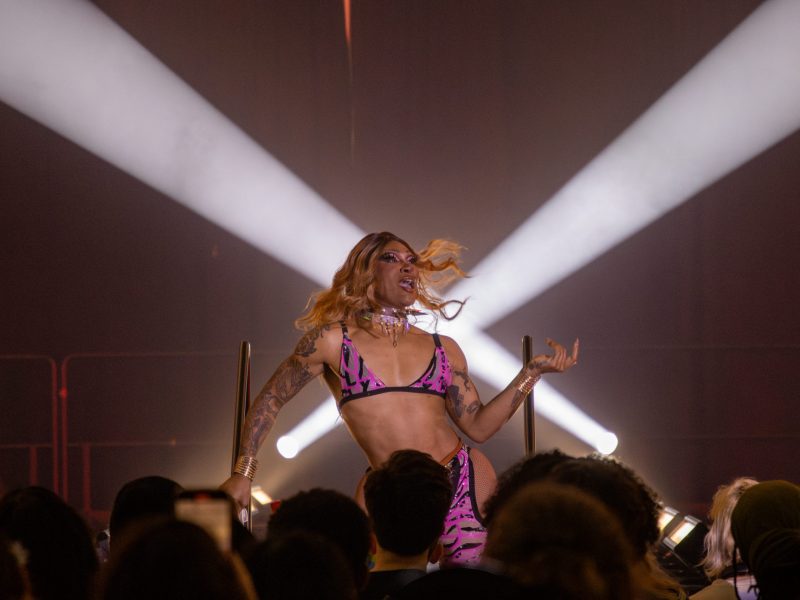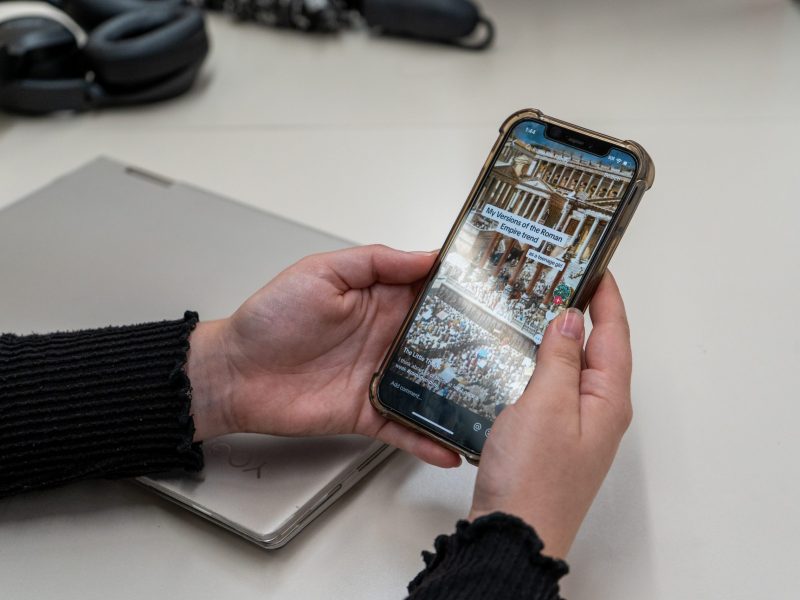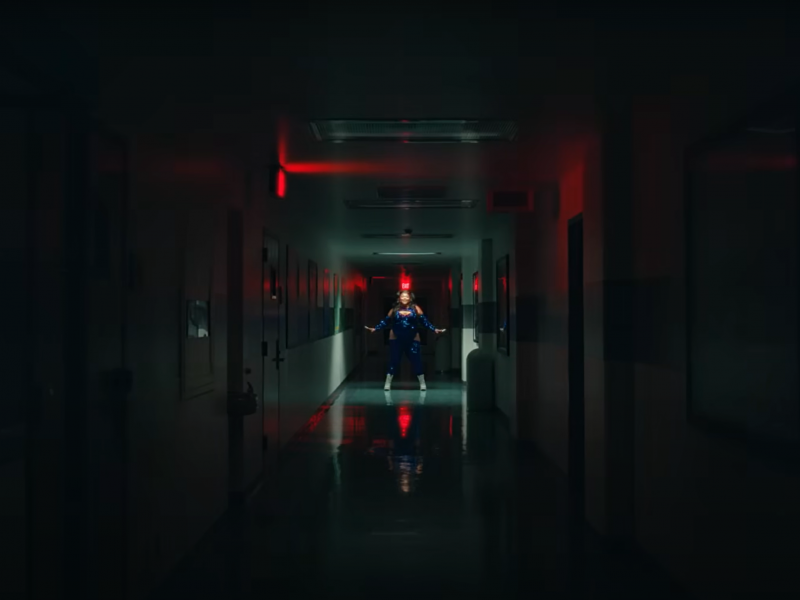Disclaimer: I’m a bit of an anxious person. Sometimes I succeed at masking it, practicing power stances in the bathroom before big meetings or plastering a huge smile on my face when talking to strangers. Other times I’m not so lucky, and the swirling thoughts and racing heartbeats can’t help but make their way into my strained expression, broadcasting my unease for everyone to see.
When I first found out that I was going to be interviewing Joel Edgerton and Jeff Nichols, I figured that I’d be able to conduct the meeting with confidence and ease. After all, this wasn’t my first interview — just my first interview with celebrities. Unfortunately, as soon as I was in the designated hotel room awaiting the interviewees, I could feel my heartbeat steadily increase and my fingers twitch. The three other reporters in the room graciously offered words of support, no doubt trying to instill some sense of calm in me. And as much as I appreciated the gestures, the real calm only came after Nichols and Edgerton appeared, Nichols introducing himself first with a firm handshake, a warm smile and a sincere “Jeff.”
Nichols and Edgerton most recently worked together on the historical drama Loving, which tells the story behind the revolutionary Supreme Court case Loving v. Virginia. Edgerton played Richard Loving, while Nichols both wrote and directed the film. Here are some of the highlights from our interview.
Q. You shot a lot of this movie in Richmond. Was it important for you to shoot the film in the location near where it actually happened?
Jeff: Yeah, it was a necessity, in fact. A requirement. There was really no other alternative for me. Because in 2012, when I first started researching this film, Virginia was the first place I went. We just had to be there. That was the courtroom that they were tried in, that was the jail that they were held in. The emotional resonance — and Ruth [Legga, who played alongside Edgerton as Mildred Loving] speaks about this a lot — the energy that was kicking off of that place was pretty palpable. It just makes it all that much more real for us — there’s a responsibility that comes along with that. It’s a beautiful place, and that’s such a big part of Mildred’s character. The fact that she was willing to come live in hiding under threat of arrest or much worse is a large part because of the nature in that place.
Q. Was that helpful for you as an actor being in the place where that actually happened?
Joel: Absolutely, it definitely does. It was very smart of Jeff to invite Ruth and I to Virginia together, to take us on a tour of those places and just to let us soak up the neighborhood. It brought the whole story closer in time. It sort of cut the 50 years away for me. But we went to visit the graves of Richard and Mildred — buried very closely side by side. And I had an experience in that cemetery with Ruth, where I realized just how connected and emotionally affected she was by the whole story, and by being there it raised the level of importance of this film and privilege we had to tell it. That would never have happened if we never had gone there and shot there.
Q. Taking a story that’s based on actual events can be difficult to bring to the screen. What were some of the challenges you faced [with] this story?
Jeff: Well, for me, my brain goes to narrative structure because these events all happened over the course of a near decade. How do I contain that? How do I show the essence of these beautiful people — this beautiful family — but also [show] the harrowing events and the parts I don’t have specifics to support? For me it really became about structure. Before this story even came to me I’d been thinking about if I had to tell a rural film that took place over a long period of time, how interesting would it be to tell it through seasons. And that started to become the foundational narrative structure for me. If you think about how insidious the punishment was, a part of it was the time, especially when you know how long Richard had on this earth. They were taking time away from these people. That seemed to fit this earlier idea I had. I kind of wanted you to feel like the seasons kept slipping by — all of the sudden it’s winter again. Spring, summer, fall and then winter again. It’s just slipping through your fingers. That was a challenge to write and organize that in my mind and still be truthful to the details, yet also execute that on set. Usually when you make a movie you put everything in one location you shoot a location out and then you’re done, that way you only pay for that location or hold that location for a shorter period of time. We did things where we would hold locations for months — we’d shoot in September and then come back in November when the leaves had changed.
Joel: Or they’d cut the crops
Jeff: Or they’d cut the crops like at [Richard’s] mother’s house. It feels real effortless when you’re watching the film but from a production standpoint it’s pretty difficult.
Q: How did you come by learning the story of the Lovings, and how do you feel that Loving relates to the story of what’s happening today?
Jeff: Nancy Buirski made the documentary The Loving Story. In 2012 when I watched that documentary, that was the first time I heard about Richard and Mildred’s story. In my opinion, that was far too late to know about this story. It’s so shockingly relevant. It was relevant in 2012, it’s relevant today, and I’m afraid it’s going to be relevant in 10, 20, 30, 40 years. The reason for that is because this concept of equality is not something we ever achieve. It’s not something we just take care of as a society; it’s something that we constantly redefine for ourselves. We make progress, and hopefully we guard that progress, and don’t retreat. At the same time, every generation has to define how they’re going to affect the concept of equality so that people are going to look back on us, right now, and say how did you do? How did you do with this concept? How did you apply it to the world around you? What Richard and Mildred give us — oddly enough they don’t give us an answer. They don’t tell you how to feel because that’s not the type of people they were. What they do is show us the humanity that’s at the center of all this stuff so that when we’re having these debates — sometimes conversations, sometimes arguments — about the nature of equality, whether it’s marriage equality, racial equality … they show us to think about the people at the center of all these things. And that’s what’s relevant, and it’s going to stay relevant for a really long time in my opinion.
Joel: I didn’t learn about the Lovings until Jeff approached me about the project. And I always felt okay with not knowing about it because I’m not from the United States. I think I was mainly surprised that very few Americans knew about them as well. We’re looking at a nine-year period of time where two people are under a very oppressive situation. That’s a very psychological violent situation, but it’s not very newsworthy in the same way that so many other civil rights “big moments” had been. We had the privilege of visiting the [National Museum of] African American History [and Culture], and you realize how many untold stories [there were]. You’d need days to go through it and soak in everything. Stories that break your heart and stories that make you laugh and everything in between.
Jeff: And they’re very quick to point out that that’s not civil rights history, that’s American history, and that this line needs to be taken away. They take you from the 1400s to the present and beyond and … you know, this is the fabric of who we are as people, black, white and other. You know it’s everybody’s story.
Joel: Well, what I love about the film that Jeff’s made, and I feel like privilege is a really good word because I feel like everyone should have the privilege of equality, and I had the privilege as an actor by telling this story. But I think the nice quiet privilege of the movie is that you get invited into the living room and the kitchen and onto the lawn and into the garage with two people that were in love and living their life. And they’re ripped out of that place and forced to live a ruse. We’re constantly with the domesticity of them and the intimate space of the relationship. And that is the way that we need to get a window into everybody’s life — to understand that I could be you and you could be me … we’re all the same. We all could have been the same person; we all could have been born in different places in different shoes. It’s one way to continue a conversation about equality and examining judgment. Often as an actor I think, “What do I contribute to the world?” It does feel like a privilege to be able to contribute to something that’s not selfish … that says something nice.
Q: Mr. Nichols, you’ve described the Lovings as not wanting to be martyrs or symbols. How did that play into how you wanted the movie to feel?
Jeff: Pretty much everything. The movie is really just an attempt to represent their point of view through this experience. Which first means you have to understand their nature [and] their behavior, which, at the end of the day, I didn’t know them. I’m still making a judgment call on that. But through this archive of footage, through these photographs, I got a sense of them, and I wanted the narrative to reflect that. As a filmmaker, as a storyteller, you attach to point of view. It’s a powerful decision, and it’s not one that I take lightly. In Mud, I made the decision to tell the story from this 14-year-old boy’s point of view — it dictated everything. It dictated where the scenes started and stopped, where we put the camera … the same thing applies here. If you’re going to be following Richard and Mildred, you don’t get to go to the Supreme Court. That’s why I film Bernie and Phil stepping up to that podium at the Supreme Court, it’s kind of an impressionistic look. You never get to see the justices. It’s almost as if it’s this dream happening almost at the edge of Richard’s and Mildred’s perception. All that comes back to … well, we’re with Richard and Mildred. That point of view sticks. Everything comes from that.



